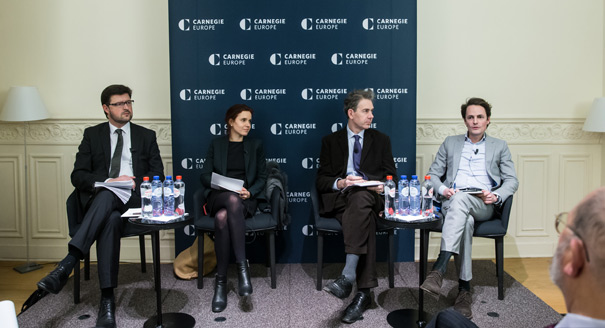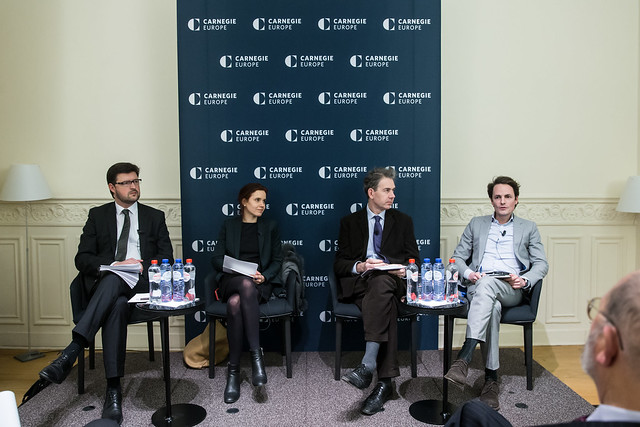Registration
You will receive an email confirming your registration.
Twenty-five years after the end of the Soviet Union, the map of Eastern Europe still contains a number of de facto separatist states created by conflict. International actors face the dilemma of choosing the right kind of interaction with territories from Abkhazia to South Ossetia to Transdniestria.
In 2009, the EU devised a non-recognition and engagement policy, which it has implemented in Abkhazia. Following the 2016 parliamentary election in Georgia, now is a good time to consider how well has the policy worked, whether it needs updating, and whether it can be applied elsewhere in the region.
Carnegie’s Thomas de Waal, an expert on the conflict regions of the former Soviet Union, discussed the findings of his latest article, entitled “Enhancing the EU’s Engagement With Separatist Territories,” with Magdalena Grono, program director for Europe and Central Asia at the International Crisis Group, and Andrei Popov, president of the Moldovan Institute for Strategic Initiatives and a former deputy minister of foreign affairs and European integration of Moldova. Fredrik Wesslau, director of the Wider Europe Program and senior policy fellow at the European Council on Foreign Relations, moderated.
Carnegie Europe is grateful to the Government Offices of Sweden for their financial support of this event.
Video
Audio
Photos
Thomas de Waal
Thomas de Waal is a senior fellow at Carnegie Europe.
Magdalena Grono
Magdalena Grono is the program director for Europe and Central Asia at the International Crisis Group.
Andrei Popov
Andrei Popov is the president of the Moldovan Institute for Strategic Initiatives and a former deputy minister of foreign affairs and European integration of Moldova.
Fredrik Wesslau
Fredrik Wesslau is the director of the Wider Europe Program and senior policy fellow at the European Council on Foreign Relations.

